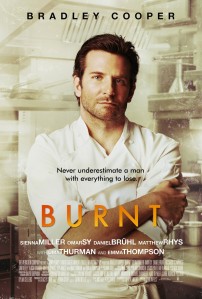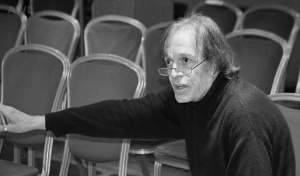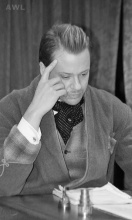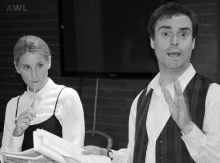 Though somewhat confused, Teddy Ferrara is an engaging piece with some intriguing characters and an excellent cast.
Though somewhat confused, Teddy Ferrara is an engaging piece with some intriguing characters and an excellent cast.
Set on a university campus that sees more than it’s fair share of suicide, it explores the lives of a range of gay and not-so-gay characters and how they intersect around stigma and social activism. It’s absolutely engaging, deals with important issues that must be addressed, but it doesn’t quite manage to hold together as well as I wanted it to.
I fear it may be too politically-minded to be of any practical good. It covers, I think, too much ground, and delves into so many political issues that its narrative is mired and somewhat unclear. It wants to be at once a story while also being a missive, and in trying to be both, it succeeds at being neither. The missive’s premise, it seems, is articulated by a minor character, rather than, as should be the case on stage, demonstrated by the central plot. The very title itself obfuscates the drama by implying that the central plot is that of Teddy Ferrara, which it is not, by any means. Far prettier characters (I’m not just talking about the actors portraying them, but also these characters’ charisma) steal the show, with Teddy ending up little more than a plot device. Or perhaps that’s not true: the stories they tell are also compelling.
And this is the play’s biggest flaw. The playwright, Christopher Shinn, has developed several compelling stories, all of them worth telling:
- Gabe’s somewhat pragmatic romance with Drew, interrupted by personal traumas and mild betrayals, would make a brilliant variation on the usual romantic play where the central characters, instead of falling madly in love, fall gently into a mixture of like and lust.
- Jay’s interest in Gabe could be more than a mere subplot to that story.
- Teddy Ferrara could also warrant a play that was actually about him, exploring the multiple personas of those who live online to escape the trauma of actual human interaction.
- The ostensibly platonic relationship between Gabe and Tim would be an interesting drama.
- The university president, with his hilarious working relationship with the provost, and their interactions with student representative groups could make a brilliant comedy.
As it stands, none of these narratives really take centre stage.
Despite the mild confusion of the competing sub-plots, Gabe, portrayed annoyingly (which is entirely appropriate) by Luke Newberry, was front and centre as a character. He is a wet handkerchief. Ostensibly altruistic and kind, but born with the benefits of good looks, and white male privilege, and displaying them in the worst possible way. His membership of the LGBTIQ minority is really the only reason he comes across with any sense of altruism at all. He is a poor choice for the university’s diversity panel, and of course endears himself to the establishment.
He is supported by the noteworthy performances of Ryan McParland, who is brilliantly awkward and absolutely endearing as the Teddy of the title, Nathan Wiley as his closeted questioning friend Tim, and Oliver Johnstone, whose irksome portrayal of the principled and very controlling boyfriend is not in any way endearing but nonetheless very recognisable and absolutely believable.
So I am left a little flat. The play was engaging and the performances brilliant. But at the risk of being as annoyingly principled as Drew, I must remind myself that although a politician may articulate, a playwright must demonstrate. It is something I always try to remember when writing, though I, too, fail.
 Gobsmacked.
Gobsmacked. I fear I may be less impressed by this film than I should be.
I fear I may be less impressed by this film than I should be. Burnt is one of those great little films that really gets around your prediction instinct. The plot, in a way, is really quite predictable, but it disguises itself exceptionally well.
Burnt is one of those great little films that really gets around your prediction instinct. The plot, in a way, is really quite predictable, but it disguises itself exceptionally well. Some days just come together, don’t they? I wasn’t thinking of doing anything terribly interesting today, but my housemate suggested trying for last minute tickets for The Winter’s Tale. I was going to say no thanks, but I struggle to say no to Shakespeare at the best of times, and I thought it was a good idea to get off my great lumbering arse. As she was queuing, though, she changed her mind and asked if I’d like to see
Some days just come together, don’t they? I wasn’t thinking of doing anything terribly interesting today, but my housemate suggested trying for last minute tickets for The Winter’s Tale. I was going to say no thanks, but I struggle to say no to Shakespeare at the best of times, and I thought it was a good idea to get off my great lumbering arse. As she was queuing, though, she changed her mind and asked if I’d like to see 


